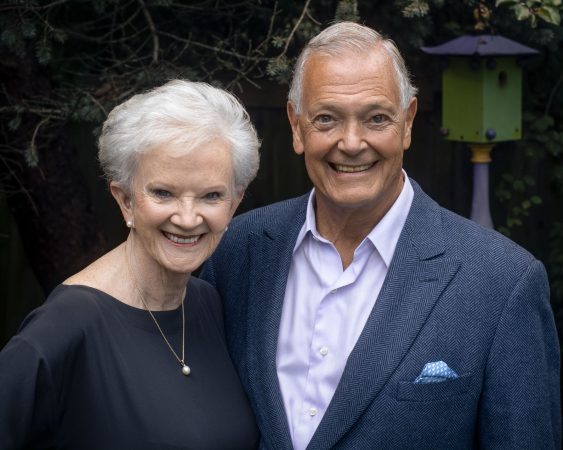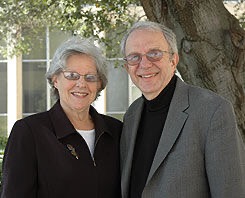November 23, 2021
Dear IPI Community,
We are pleased to share the news that David E. Scharff, MD, FABP and Jill Savege Scharff, MD, FABP, MRC.Psych. are recipients of the 2021 Sigourney Award.

The Sigourney Award is the highest distinction in the field of psychoanalysis. Founded by Mary Sigourney, the award honors innovative advancement of psychoanalytic thought and practice around the world. Eligibility criteria include initiatives that (1) heighten the visibility of the field of psychoanalysis and its applications to other disciplines; (2) interest young people in studying psychoanalysis; and (3) encompass diversity, equity, and inclusion.
David and Jill Scharff are the first couple to receive the Sigourney Award together in the same year. The nomination, for which Otto Kernberg and Anne Alvarez wrote supporting letters, earned the Scharffs the award in recognition of their exceptional contributions as pioneers of teleanalysis and training in psychoanalysis, psychotherapy, and couple and family therapy on an international scale. A distinguished panel of independent judges evaluated submissions from five continents. The other two recipients awarded this year are the Erikson Institute for Education, Research, and Advocacy at the Austen Riggs Center and Jorge Claudio Ulnik, MD, PhD from Argentina. For further information about the Sigourney Award and past preeminent award recipients, you may visit the Sigourney website at www.sigourneyaward.org.

Co-founders of the International Psychotherapy Institute (IPI), David and Jill Scharff have been passionate forerunners of distance education since the early 1990s. Prior to the advent of the Internet, the Scharffs and IPI utilized the telephone and later the Intranet (an earlier form of videoconference technology) to link teaching centers in the United States with the United Kingdom, and later with Latin America and beyond. David and Jill Scharff were inspired to deliver quality psychoanalytic teaching and practice and to bring psychoanalysis to nations and geographic areas (beginning with Panama, Long Island and Salt Lake) where psychoanalytic clinicians were absent or rare, and where daily travel would be prohibitively expensive. Their work united psychoanalytic clinicians from Austria, China, Greece, Israel, Latin America, New Zealand, Russia, and South Africa.
The Scharffs were key in legitimizing the field of teleanalysis and teleteaching, methodologies looked upon askance at that time as non-traditional and less effective. As early adopters of teleanalysis and teleteaching, the Scharffs required not only ingenuity, but also courage and tenacity as stalwart supporters of this pioneering approach. Their work in remote learning and practice began three decades before the COVID-19 pandemic, which necessitated such vital techniques to preserve our interconnected lives and work. Inside their professional home of the IPI, David and Jill Scharff still contribute by mentoring and teaching clinicians at all stages of their careers to promote the ongoing development of excellence in psychoanalytic treatment approaches with individuals, couples, families, and communities.
Jill and David Scharff have expressed their intention to donate to IPI their financial award that accompanies the Sigourney prize in acknowledgement of their gratitude to IPI and all the students, faculty and program partners who worked with them to build an international psychoanalytic distance learning community. Specifically, the Scharffs have suggested that IPI use their prize money to create a fund for an IPI annual distinguished guest lecture, an online event to reflect their pioneering devotion to teleanalysis and distance learning on a domestic and international scale. The terms and conditions of this initiative within the IPI will be developed and discussed between the Scharffs and the IPI over the coming weeks. David and Jill’s generous gift exemplifies their kindhearted spirit and tireless devotion to IPI and its promotion of worldwide access to psychoanalysis and the development of future generations of analytic practitioners, educators, and leaders.
Please join us in honoring David and Jill Scharff for receiving the prestigious Sigourney Award.
Warmest wishes,
Caroline Sehon, MD, FABP (IPI Director)

Rich Zeitner, PhD, FABP, ABPP (IPI Board Chairman)



